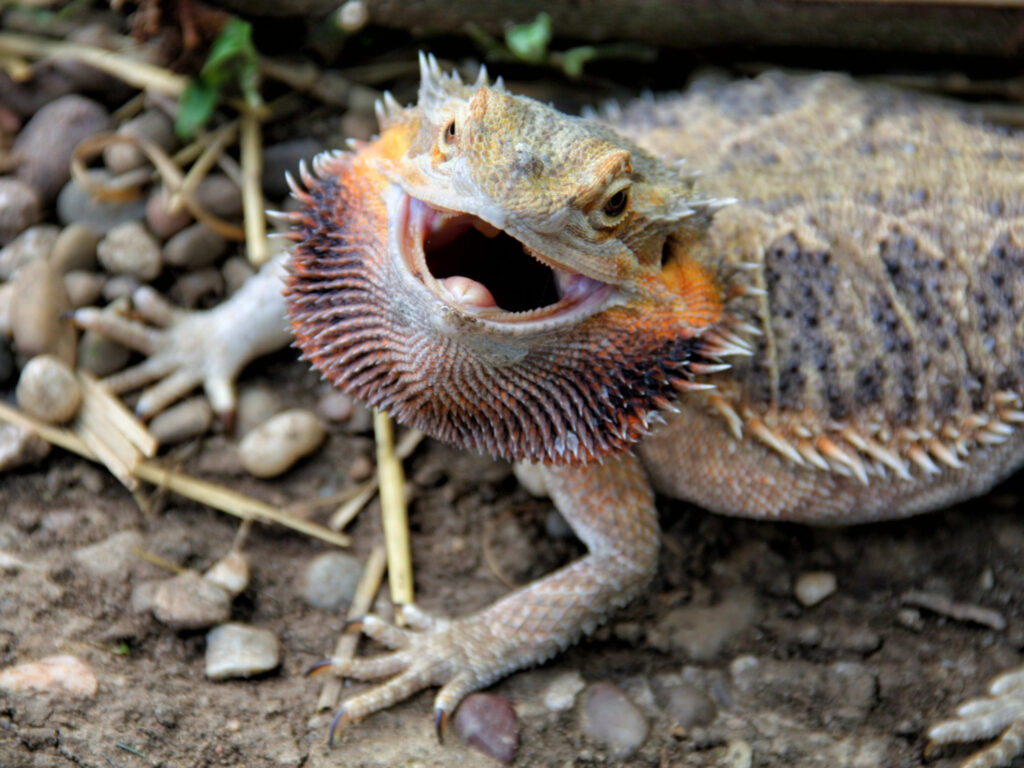Bearded dragons are one of the most popular reptile pets in the world and for good reason. Their calm demeanor, curious personalities and manageable size make them an ideal companion for both beginner and experienced reptile keepers. If you’re considering bringing one of these fascinating creatures home, it’s essential to understand what goes into caring for them. Before you start browsing for a bearded dragons for sale, read this guide to ensure you’re fully prepared.
Understanding the Bearded Dragon
The bearded dragon (Pogona vitticeps) is a type of lizard native to Australia. These reptiles earned their name due to the beard-like spikes under their chin, which they puff up when threatened or displaying dominance. Bearded dragons can grow up to 24 inches in length and live between 8 to 12 years in captivity with proper care.
They are diurnal, meaning they are active during the day and sleep at night, making them great companions for those who want to interact with their pets during regular waking hours.
Choosing the Right Bearded Dragon
When searching for bearded dragons for sale, you’ll encounter a variety of morphs, sizes and color variations. Morphs are specific genetic traits that result in differences in skin color, pattern and even scale texture. Popular morphs include:
- Classic or Standard Morph – Resembles the wild type and is usually tan or brown.
- Hypo Morph – Has reduced black pigment, resulting in lighter tones.
- Translucent Morph – Features clear nails and a bluish belly.
- Black Bearded Dragon – A rare variation known for its deep, dark coloring.
If you’re specifically looking for a unique and exotic pet, you might want to consider a black bearded dragon for sale. These rare morphs are not only stunning but also a conversation starter among reptile enthusiasts.
Where to Buy a Bearded Dragon
There are several options when it comes to purchasing a bearded dragon:
- Reputable Breeders – Buying directly from a breeder is often the best choice. You’ll get a healthy lizard with a known lineage and often receive helpful care tips.
- Pet Stores – While convenient, not all pet stores offer the same level of care. Make sure the facility is clean and the animals are housed properly.
- Online Reptile Shops – Many breeders and sellers offer bearded dragon for sale listings online. Look for reviews, ask for photos and inquire about their shipping practices.
- Reptile Expos and Shows – These events provide a chance to see many reptiles in one place and speak directly with breeders.
Habitat and Housing Requirements
Before bringing your bearded dragon home, you’ll need to set up a proper habitat. A 40-gallon tank is the minimum recommended size for an adult bearded dragon, though larger is always better.
Essential Supplies:
- Substrate: Avoid loose substrates like sand or wood chips as they pose an impaction risk. Use reptile carpet, newspaper or tile.
- Lighting: Bearded dragons require both UVA and UVB lighting to regulate their metabolism and prevent diseases like metabolic bone disease.
- Temperature Gradient: Maintain a basking area at 95–110°F and a cooler area at 75–85°F. Nighttime temperatures can drop to around 70°F.
- Decor: Include branches, rocks and hides to encourage climbing and exploration.
Diet and Nutrition
Bearded dragons are omnivores, requiring a balanced diet of insects and vegetables. Younger dragons need more protein from insects like crickets, dubia roaches and mealworms. Adults should eat more plant-based foods.
Common Foods:
- Insects: Always dust with calcium and vitamin D3 supplements.
- Vegetables: Collard greens, mustard greens and squash are excellent staples.
- Fruits: Use sparingly. Berries, apples and melons can be occasional treats.
Freshwater should always be available and misting or soaking can help with hydration and shedding.
Health and Wellness
A healthy bearded dragon will be alert, active and have clear eyes and skin. Common health issues include:
- Metabolic Bone Disease: Caused by calcium deficiency and lack of UVB light.
- Parasites: Regular fecal exams from a reptile vet can catch infections early.
- Impaction: Often due to ingesting loose substrate or oversized prey.
Regular vet visits and observation are key to maintaining your dragon’s health.
Handling and Temperament
One of the best things about bearded dragons is their friendly and docile nature. They tolerate handling well and often enjoy sitting on their owner’s shoulder or lap. However, always handle them gently and support their entire body to prevent stress or injury.
Over time, with regular handling and interaction, many bearded dragons become quite attached to their humans. Just remember to wash your hands before and after handling to prevent the spread of bacteria like Salmonella.
Why People Love Bearded Dragons
Bearded dragons are loved for their curious personalities and expressive behaviors. They can recognize their owners, display unique social signals and even respond to their names in some cases. Watching them interact with their environment is both entertaining and enriching.
Moreover, their care routine is manageable once their habitat is properly set up. This combination of simplicity, beauty and engagement makes them an excellent pet for all age groups.
Final Thoughts
Whether you’re a first-time reptile owner or an experienced keeper, bearded dragons offer a wonderful pet experience. Before jumping into the purchase, make sure you’re ready to meet their habitat, diet and care needs.
As you begin your search for the perfect bearded dragon for sale, take your time to find a healthy, well-bred animal. And if you’re looking for something more unique, exploring listings for a black bearded dragon for sale might just lead you to your ideal scaly companion. Reputable sources offering bearded dragons for sale often provide guarantees, support and resources to help ensure your pet thrives in its new home.



